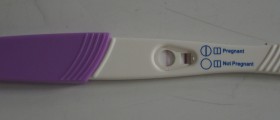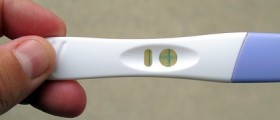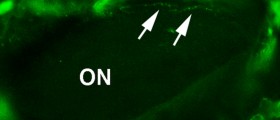
Luteal phase defect is also defined in cases when endometrium does not respond appropriately to the progesterone stimulation therefore causing endometrial lining not being ready for implantation, which is the main reason women have problems conceiving.
What causes luteal phase defect?
It is difficult to point what exactly is the cause for luteal phase defect as there are so many factors that can affect woman's menstrual cycle and therefore also production of progesterone and consequently luteal phase. In some cases luteal phase defect is caused by thyroid problems or hyperprolactinemia, which is the caused by abnormally high levels of prolactin (the hormone that is responsible for milk production).
What are the symptoms of luteal phase defect?
Some women may experience light but frequent periods, but most women will not be able to notice any symptoms of luteal phase defect, and they will identify they have problems in a period of trying to conceive, or simply if making hormonal test. Since progesterone raises body temperature, and is the hormone that increases during luteal phase, women with luteal phase defect may notice they basal body does not rise during luteal phase. First of all, you can't determine yourself you have LPD, but if you have been faced with the defect, do not desperate, because there are luteal phase defect treatments available.
- www.womenshealth.gov/pregnancy/you-get-pregnant/trying-conceive
- Photo courtesy of Rebecca Krebs by Flickr: www.flickr.com/photos/missturner/13295005645/
















Your thoughts on this
Loading...